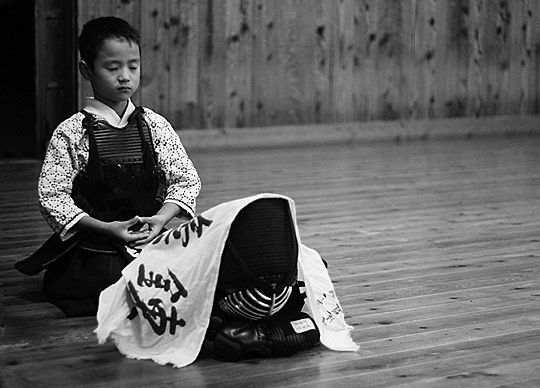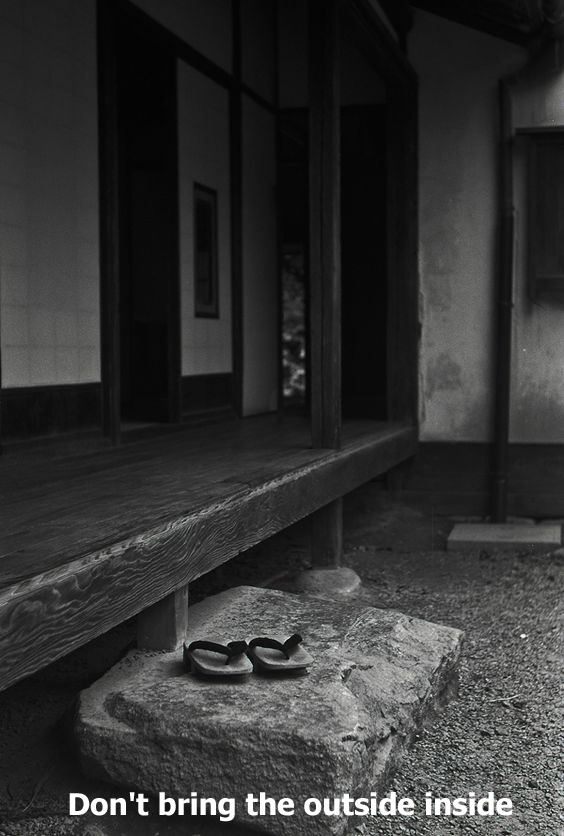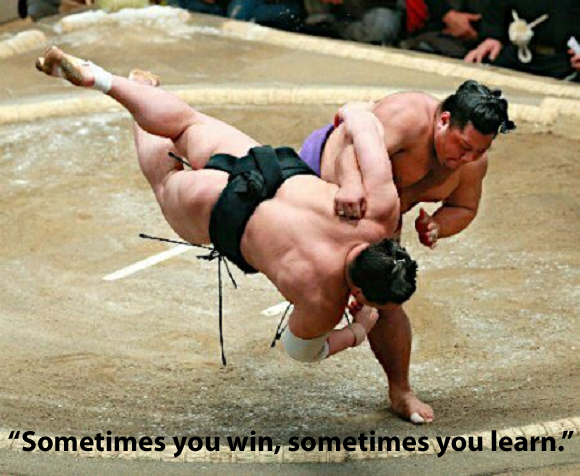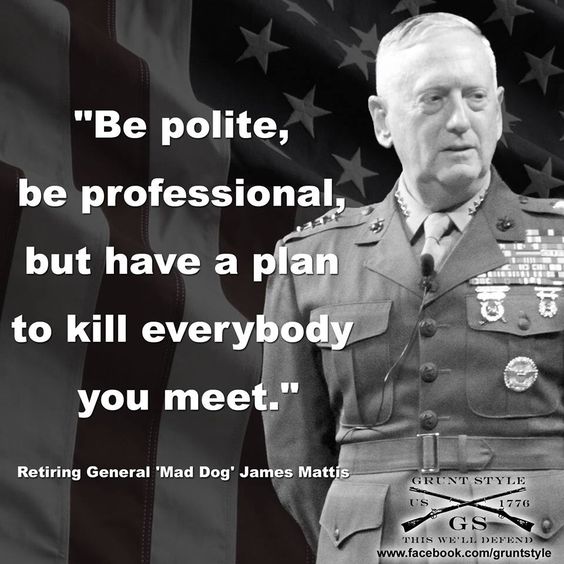 Sometimes, we find something that says it better than we do. This case is one of them. Sawaki Kodo or "Homeless Kodo" was a Soto Zen Buddhist monk who died in 1965. He was a favorite of Furuya Sensei's and many of his books can be found in Sensei's library.
Sawaki Kodo's words, "Don’t use your gifts poorly” really resonate with me. I hope that his article somehow inspires you.
Sometimes, we find something that says it better than we do. This case is one of them. Sawaki Kodo or "Homeless Kodo" was a Soto Zen Buddhist monk who died in 1965. He was a favorite of Furuya Sensei's and many of his books can be found in Sensei's library.
Sawaki Kodo's words, "Don’t use your gifts poorly” really resonate with me. I hope that his article somehow inspires you.
Good and Bad
By Sawaki Kodo
The human race is set apart by their intelligence and their manual dexterity. With these, they can build all sorts of machines. They also like to fight one another and they use language with skill. Put simply, humans have been given many talents. Unfortunately, it seems not many use these faculties well.
The saying goes, “Don’t use your gifts poorly.” I would even say that it is essential to do everything possible to use our talents to the best. A fraud makes bad use of his talents, so does a loan-shark, and so does the man with three sets of holiday homes and mistresses! Each one of us in our own way is an example of badly used talent. Starting with myself, when I look closely I see I am mediocre too. Those whose paths are without error are extremely rare.
Making the best of your abilities-this is to identify yourself with Buddha or God.
I would say that before anything else, you must know yourself to the core. Then make manifest the best in yourself and cut the passions which make us tend to use ourselves poorly. Like this, holding the sharpened sword of wisdom, we climb our own summit, to the peak of light that contains the entire universe. “Seizing the sword of wisdom” means taking human capacities to their highest potential.
One day, a long time ago, someone saw Sariputra urinating in a field. The man who saw him had such a powerful experience that he put his hands together and did sampai. The story says that at that instant he saw the true nature of Buddha.
It seems that just seeing Sariputra in the posture of urinating naturally inspired deep respect. Whether we are doing zazen or reading sutras, we should summon respect. The same goes for all our daily gestures, like eating or urinating, which we don’t generally pay much attention to. This way infinite benefits flow from each instant of our daily life-like dragons and elephants who stomp and play without ever needing to hear the Dharma.
When I look back on my life, I see I could have been anything. When I was young, I thought of doing many different things. Is it just chance that I became a monk and dedicated all my energies to that? I could have worked on the railroads. All day long I’d throw my pick to dig the earth; and when I’d leave at night, I’d drink lots of sake. I would have liked this life, since it would have been my life. I could have been a singer (I don’t know if I’d be any good), or a storyteller. I could have become anything, a good guy, or a crook. A life is like a vise, it can hold this or that, it has many uses. The same goes for illusions or satori.
Mount Fuji is considered a big mountain, but seen from the top of the Himalayas, it seems pretty small. They say the Pacific is huge, but it’s only a part of the globe. Seen from the universe, it looks like a footbath. (It’s not even unfathomable; we know how deep it is). It is difficult to imagine man as a miniscule little animal. Seen with a microscope, an amoeba looks like a diver swimming at the bottom of the sea. She can’t even see the edges of the slide she moves on, to her it’s as big as the Pacific Ocean. To say that something is big or small is to look with a defective vision. It’s up to us to look at our world differently.
What really makes them happy, these little humans in their miniscule little world? They like to have a good time and get presents. They consider a birth a happy event (though it could be a disaster if the baby is deformed or becomes a good for nothing), and that a marriage is cause for congratulations (though they don’t know if the groom won’t end up to be an incurable drunk). Joy and suffering are relative ideas, indefinite and deceiving. Nothing allows anyone to say with any certainty that this event is happy and that one unhappy. The good carries in it the bad, and vice-versa. So:
Truth is without foundation,
the root of illusion is empty.
In abandoning having and not having,
the non-empty becomes empty.
The whole universe is contained in those two verses.
The good and the bad have never existed. So Shinran’s remark stands true:
Don’t be proud of virtue,
Don’t be afraid of the bad.
All humans, without exception, are neither good nor bad.



















